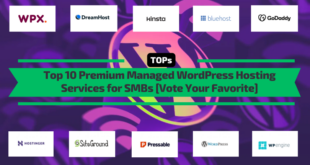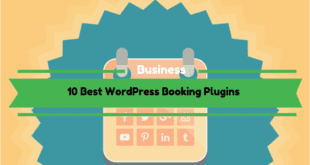Jeśli czytasz nasz magazyn, najprawdopodobniej masz już startup lub myślisz o samodzielnym rozpoczęciu działalności gospodarczej.
Nie ma znaczenia, na jakim etapie się znajdujesz, jest wiele rzeczy, których możesz się nauczyć z doświadczeń innych ludzi, zwłaszcza startupów technologicznych. Dzieje się tak dlatego, że większość z nich zaczynała jako projekty poboczne z niewielkim lub żadnym finansowaniem, a następnie została mocno dostosowana, aż stała się wielkimi nazwiskami, które są dzisiaj.
Przygotowałem listę infografik pokazujących wyboiste drogi 4 startupów (Instagram, Airbnb, Pinterest i Twitter) od samego początku do momentu, gdy osiągnęły wartość miliardów dolarów.
Do każdego z nich dodałem swój własny punkt widzenia i rady, które pomogą Ci uczyć się na ich doświadczeniach.
Spis treści
Jak powstał Instagram
Po uruchomieniu w 2010 r. Instagram szybko zyskał popularność – w ciągu dwóch miesięcy zarejestrowało się milion użytkowników, 10 mln w ciągu roku i 1 miliard w maju 2019 r.
W kwietniu 2012 r. Facebook nabył usługę za około 1 miliard dolarów w gotówce i akcjach.
Na infografice poniżej możesz zobaczyć drogę Instagrama od powstania firmy do produktu, który dzisiaj jest wart miliardy dolarów.

Infografika stworzona przez Annę Vital.
Wnioski z historii na Instagramie:
- Przede wszystkim potrzebujesz MVP (minimalnie opłacalnego produktu), który możesz pokazać potencjalnym inwestorom i uzyskać pierwszą rundę finansowania.
- W pewnym momencie może być konieczne ponowne uruchomienie produktu od zera i odbudowanie produktu. Nie bój się tego.
- Skoncentruj się na głównej cesze swojego produktu. Łatwo jest się rozproszyć i dodać wiele funkcji dostępnych dla konkurencji, ale pamiętaj, że użytkownicy wybierają Cię ze względu na jedną najlepszą rzecz, jaką potrafisz zrobić, a inni nie.
Jak powstał Airbnb

Infografika stworzona przez Annę Vital.
- Zanim zaproponujesz go publicznie, przetestuj pomysł samodzielnie i upewnij się, że jest wykonalny.
- Nie potrzebujesz wymyślnej aplikacji ani strony internetowej, aby rozpocząć i przetestować swój pomysł na biznes.
- Jeśli nie możesz zdobyć pieniędzy od inwestorów, możesz pożyczyć od znajomych lub pracować nad dodatkowymi projektami, dopóki nie zdobędziesz kapitału.
- Być może na początku będziesz musiał włożyć trochę pracy, aby przekonać użytkowników do korzystania z Twojej aplikacji/strony internetowej.
Jak powstał Pinterest
Dyrektor generalny Pinteresta, Ben Silbermann, podsumował firmę jako „katalog pomysłów”, który inspiruje użytkowników do „wyjścia i zrobienia tego”, a nie jako sieć społecznościowa oparta na obrazach.
Rozwój Pinteresta rozpoczął się w grudniu 2009 r., a uruchomienie serwisu nastąpiło w marcu 2010 r. Dziewięć miesięcy po uruchomieniu serwis miał 10 000 użytkowników. Ben powiedział, że osobiście napisał do pierwszych 7 000 użytkowników witryny, oferując mu swój osobisty numer telefonu, a nawet spotykając się z niektórymi użytkownikami.
W lutym 2019 roku „Wall Street Journal” podał, że Pinterest potajemnie złożył wniosek o pierwszą ofertę publiczną. Całkowita wycena firmy w tamtym czasie osiągnęła 12 miliardów dolarów.

Infografika stworzona przez Annę Vital.
- Zanim zaproponujesz go publicznie, przetestuj pomysł samodzielnie i upewnij się, że jest wykonalny.
- Nie potrzebujesz wymyślnej aplikacji ani strony internetowej, aby rozpocząć i przetestować swój pomysł na biznes.
- Jeśli nie możesz zdobyć pieniędzy od inwestorów, możesz pożyczyć od znajomych lub pracować nad dodatkowymi projektami, dopóki nie zdobędziesz kapitału.
- Być może na początku będziesz musiał włożyć trochę pracy, aby przekonać użytkowników do korzystania z Twojej aplikacji/strony internetowej.
Jak powstał Twitter
Twitter powstał i został uruchomiony w 2006 roku, a usługa szybko zyskała popularność na całym świecie. W 2012 roku ponad 100 milionów użytkowników publikowało 340 milionów tweetów dziennie.
Od 2015 roku Twitter jest siedliskiem debat i wiadomości dotyczących polityki Stanów Zjednoczonych. W 2016 roku Forbes wycenił Twittera na 15,7 miliarda dolarów.

Uwaga: w Business Insider znajduje się bardziej szczegółowy artykuł na temat historii Twittera .
- Ważne jest, aby pokazywać swoją pracę na konferencjach i wydarzeniach. Użycie Twittera eksplodowało podczas konferencji SXSW.
Wniosek
Jeśli istnieje jedna rada, którą wszystkie te historie wyraźnie pokazują, to taka, że nigdy nie należy rezygnować z marzenia o założeniu firmy. To może nie być łatwe, może zająć więcej czasu i energii niż planowałeś, ale nagroda jest.
Teraz nadszedł twój czas. Podziel się z nami, jeśli masz już własną firmę lub planujesz ją założyć. Z jakimi trudnościami się borykasz?
 Monetize.info Pomożemy Ci lepiej monetyzować Twoje zasoby cyfrowe! 💰👍
Monetize.info Pomożemy Ci lepiej monetyzować Twoje zasoby cyfrowe! 💰👍








